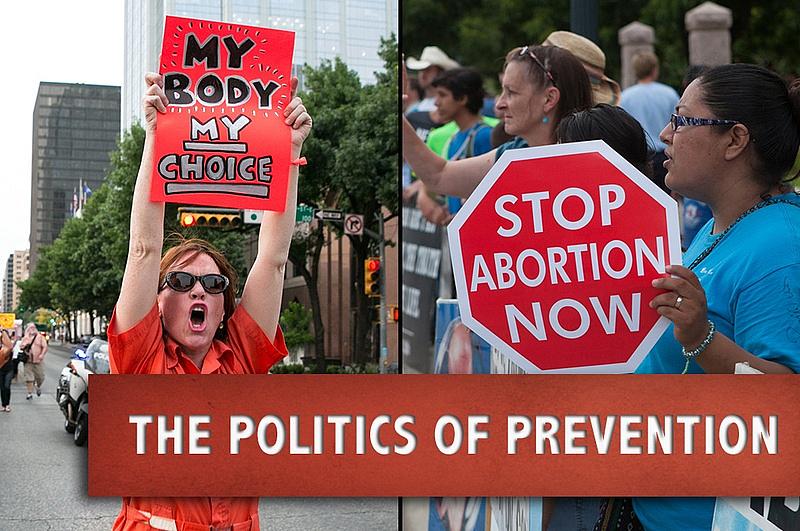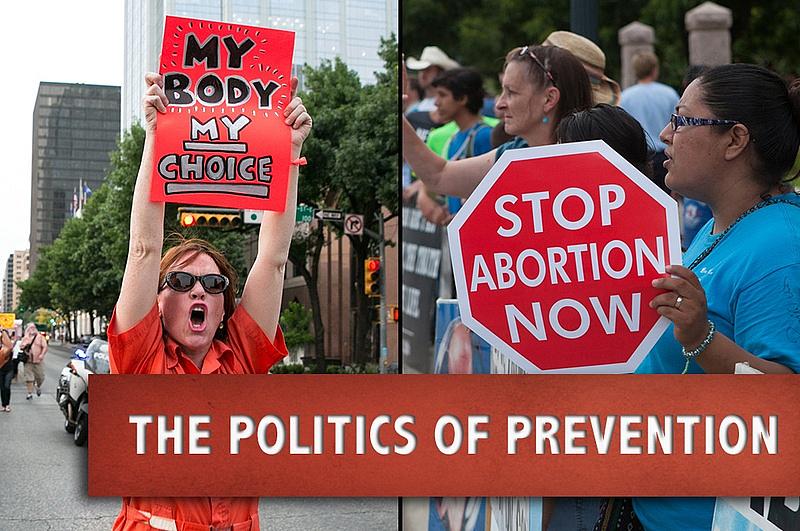Court Rules Abortion Restrictions Unconstitutional
Less than 24 hours before new abortion regulations were set to take effect in Texas, a U.S. District Court judge blocked the implementation of two provisions challenged by abortion providers, ruling that they could place an undue burden on women and are therefore unconstitutional.
This story is part of an ongoing series that 2013 Dennis A. Hunt Fund for Health Journalism Grantee and National Health Journalism Fellow Becca Aaronson will write for the Texas Tribune on women's health care in the state. For a complete look at Aaronson's extensive coverage, click here.


The Texas Tribune
October 28, 2013
Less than 24 hours before new abortion regulations were set to take effect in Texas, U.S. District Judge Lee Yeakel blocked the implementation of two provisions challenged by abortion providers, ruling that they could place an undue burden on women and are therefore unconstitutional.
In his opinion, Yeakel wrote that a provision of House Bill 2 that requires doctors performing abortions to have admitting privileges at a hospital within 30 miles of the abortion facility "places a substantial obstacle in the path of a woman seeking an abortion of a nonviable fetus and is thus an undue burden to her.”
He wrote that a second provision requiring women to follow a federally-approved regimen for drug-induced abortion — as opposed to a more commonly used evidence-based regimen — would not generally place an undue burden on women seeking abortions. But he said it would be unconstitutional for the state to ban a woman from having such an abortion if it was safer for the woman in a physician's "appropriate medical judgment." Yeakel’s ruling allows a physician to use the evidence-based protocol for drug-induced abortions in certain situations that present a risk to the health and safety of the mother.
Yeakel indicated during court proceedings that he believes his decision will be appealed to the Fifth Circuit U.S. Court of Appeals, which has recently upheld numerous laws that restrict abortion. He said it could eventually make its way to the U.S. Supreme Court.
The plaintiffs, who represent the majority of abortion providers in Texas, including four Planned Parenthood affiliates, Whole Woman’s Health and other independent abortion providers, asked the court for an injunction to block the implementation of the two provisions originally slated to take effect on Tuesday.
The plaintiffs argued that the hospital privileges and drug-induced abortion provisions are unconstitutional because they place an undue burden on women attempting to access the procedure. They said a third of abortion facilities in Texas would not have a physician with hospital admitting privileges if the law was upheld, and would likely close, causing 22,000 women to lose access to abortion. The plaintiffs also argued that the FDA regimen that women would be required to follow is outdated compared to a commonly-used evidence-based regimen, which multiple national studies have shown is more effective, less costly and has fewer negative side effects, as it requires a lower dosage of medication.
The state’s attorneys countered those arguments, claiming that the law advances the state’s interest in protecting life and would not place an undue burden on women. They also argued that doctors should petition the FDA, not the state, if they believe that the agency’s protocols are outdated.
Two additional provisions in House Bill 2 remain unchallenged — a ban on abortions after 20 weeks of gestation, which will still take effect on Tuesday, and a requirement that clinics meet the same standards as ambulatory surgical centers beginning in September 2014.
Shortly before the ruling, the Texas Alliance for Life sent out a press release saying the new provisions were needed to improve safety standards for women. They highlighted a state inspection report for the Whole Woman’s Health facility in Beaumont, which indicated that the facility had numerous violations as of Oct. 3, including rusty equipment and a six-inch hole in the flooring of a cabinet used to store sterilization materials.
"Whole Woman's Health and Planned Parenthood want the public to believe that abortion facilities are safe for women,” Joe Pojman, executive director of Texas Alliance for Life, said in a statement. "No woman should be exposed to such horrendous conditions. Women deserve better."
In September, a Texas Tribune review of state inspection records for 36 abortion clinics from the year preceding lawmakers’ approval of HB 2 turned up little evidence to suggest the facilities were putting patients in imminent danger. State auditors identified 19 regulatory violations that they said presented a risk to patient safety at six abortion clinics that are not ambulatory surgical centers in Texas. None was severe enough to warrant financial penalties, according to the Department of State Health Services, which deemed the facilities’ corrective action plans sufficient to protect patients.
After gubernatorial candidate and state Sen. Wendy Davis, D-Fort Worth, filibustered a bill with the same provisions as HB 2, Gov. Rick Perry called state lawmakers back to pass the legislation in a second special session. Thousands of people from across the state and the nation rallied at the Capitol to show their opposition to and support of the strict abortion regulations. When Perry signed the bill into law in July, he said, “Today’s signing definitely builds upon our continued commitment to protecting life in the state of Texas.”
Since its passage, the impact of the provisions in HB 2 has continued to draw national attention. Thousands of people have submitted comments on the proposed rules to implement the law, according to the Department of State Health Services. Given the volume of the submissions, it’s currently unknown how many of those comments are in support of or opposition to the proposed rules.
The chief executives of four Planned Parenthood affiliates in Texas wrote in a letter submitted to the state on Thursday that the proposed rules “would do nothing to protect Texas women’s health, and in fact would jeopardize their health by forcing safe abortion providers to close down, making safe and regulated abortion services far less accessible.” According to the letter, no more than eight abortion facilities would remain open in Texas if the proposed rules took effect, depending on whether additional abortion providers were able to obtain hospital admitting privileges or open ambulatory surgical centers.

